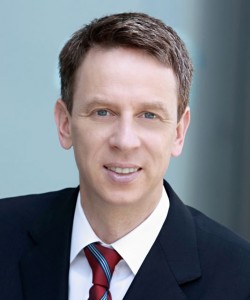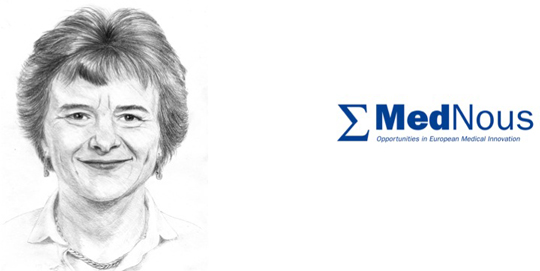Archive: akampion Meets …
akampion Meets…Dr. Roman Rittweger, Founder and CEO of Roman Rittweger Advisors in Healthcare and Organizer of the IIHC Conference
akampion: You are organizing a new conference called Innovations and Investments in Healthcare (IIHC). What is the idea behind this new event?
R.R.: I had been organizing an exclusive, invite-only German event for the past five years in Munich, but I felt it was time to open the format for new ideas and new people and also attract a broader, international audience. The past conferences have been very successful because we were not relying on the typical company presentations, but instead hosted interactive panels consisting of four experts and one senior partner of Roman Rittweger Advisors in Healthcare. No boring slides! The new event takes the concept even further and is, among others, inspired by the TED conferences.
akampion: So what exactly is the goal of the IIHC?
R.R.: Our goal is to present exciting international developments to healthcare players in Germany. We want to confront German opinion leaders with the latest business ideas from the US, Asia etc. As an example, take the mobile health businesses that arrived in the US and large parts of Asia already, but not here. We are also taking a look at how other countries organize and re-organize their healthcare systems, for example emerging countries. What is their cost-benefit assessment of proven and novel products?
akampion: Can you tell us more about the program?
R.R.: The program is a good mix of interactive panels, three-slide presentations in front of an expert jury, and so-called “speed-dating sessions”, which gives selected attendees the opportunity to tell others about his business. And the keynote is extremely important, too – this year, we got Brian David Johnson, Futurist and Director, Future Casting and Experience Research at Intel Labs, U.S. We even have panelists from Abu Dhabi and Kazakhstan, where the healthcare systems are currently being completely re-invented. Moreover, a trauma surgeon will introduce telemedicine approaches to improve the treatment of traffic accident victims, we will talk about the “quantified self”-movement and how health and gene data can help to improve quality of life and the healthcare system. We will also discuss what drives investments in healthcare, what regulators require these days from innovations and what pharma and medtech companies can learn from a venture capital fund.
akampion: Who is your target audience?
R.R.: We are primarily targeting German decision makers, but will increase the number of international attendees over time, e.g. from Scandinavia or Eastern Europe. It is important to us that we attract representatives from both start-ups and emerging markets, as well as established companies and countries. Regulators and payors are key target groups, too.
akampion: Sounds very exciting! Last but not least – why did you choose a venue in Berlin?
R.R.: We are fully aware that the informal part of a conference is extremely important, especially for networking and attracting a broader international crowd. Therefore, we have decided to host the conference in Berlin. We will also have evening receptions and offer our attendees the opportunity to explore Berlin´s fascinating nightlife.
More information about the IIHC can be found at www.iihc.eu



